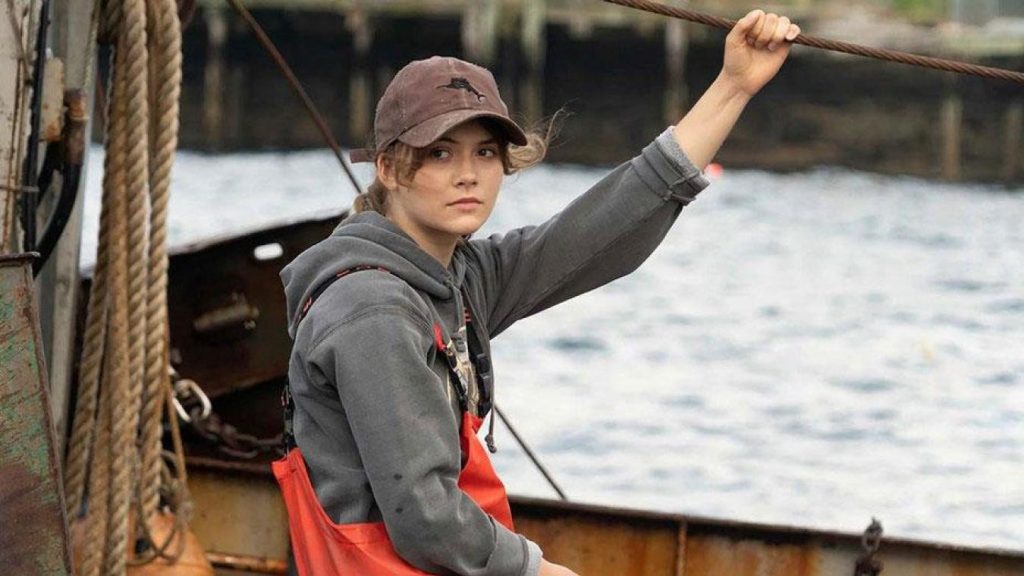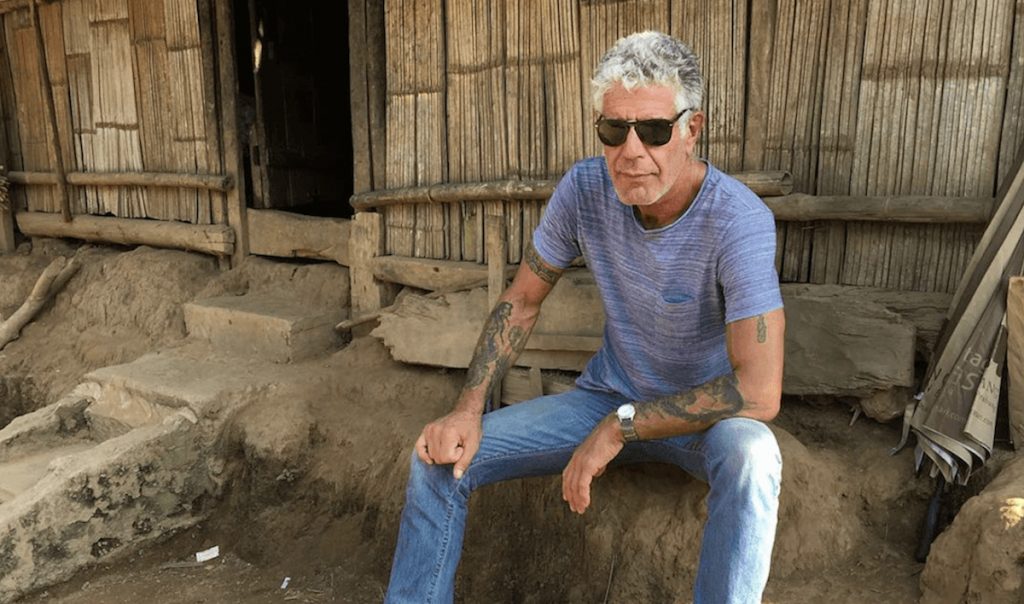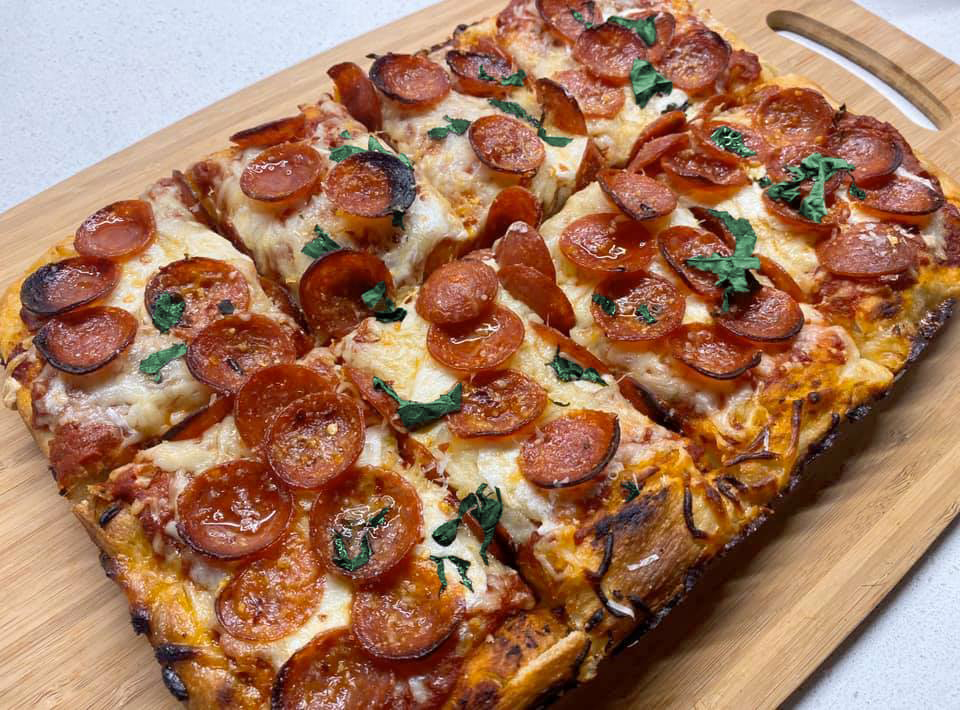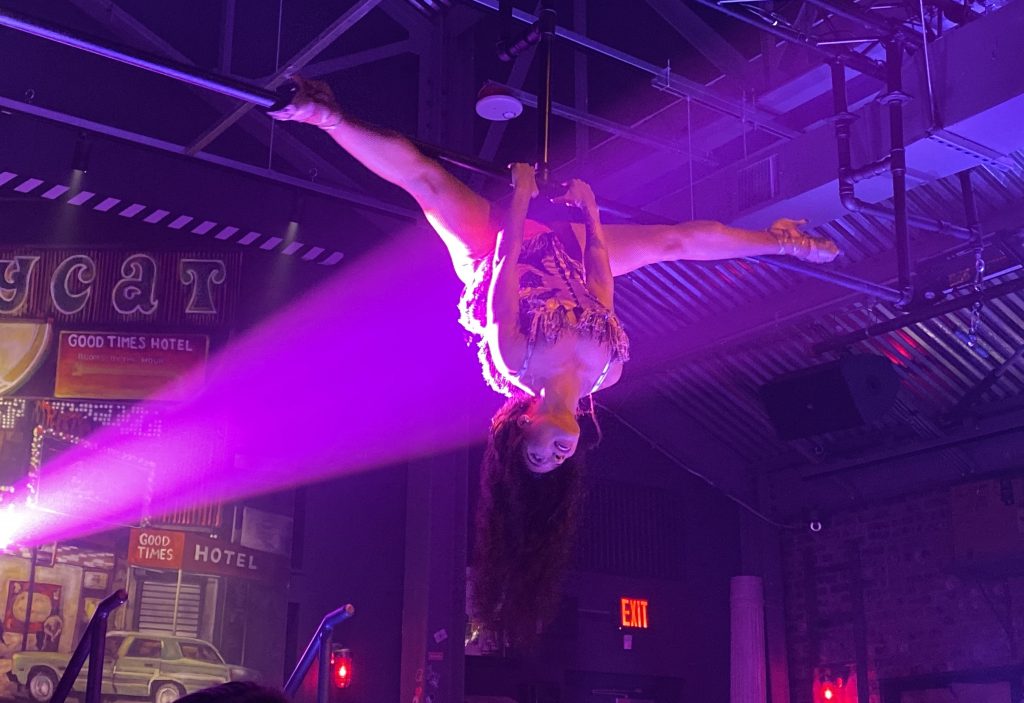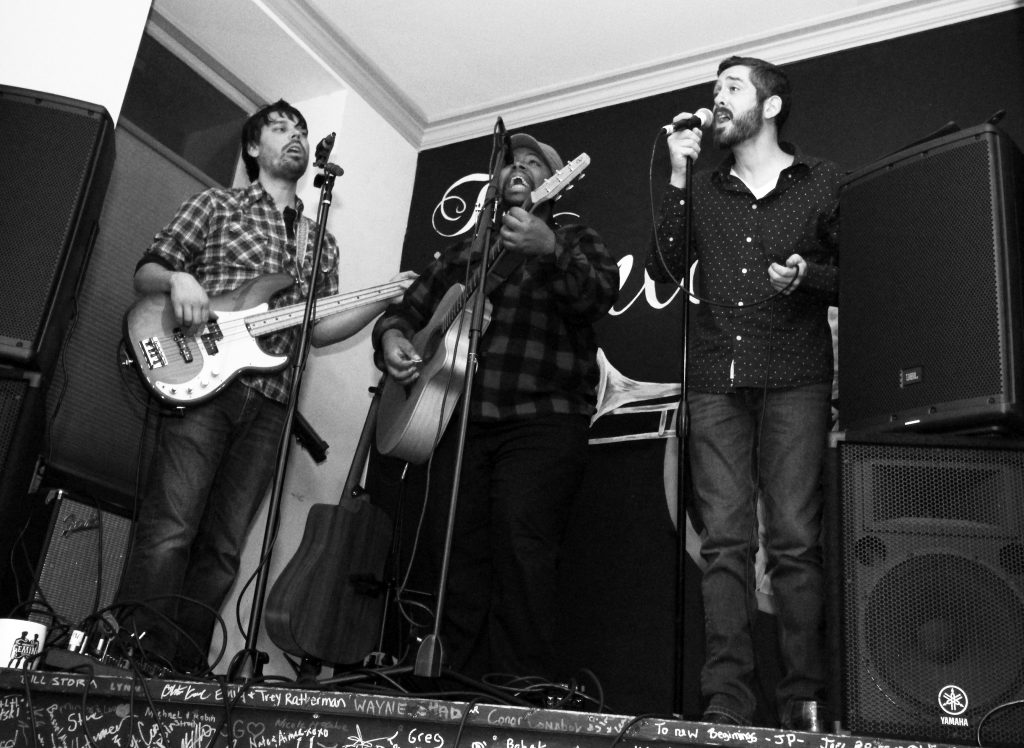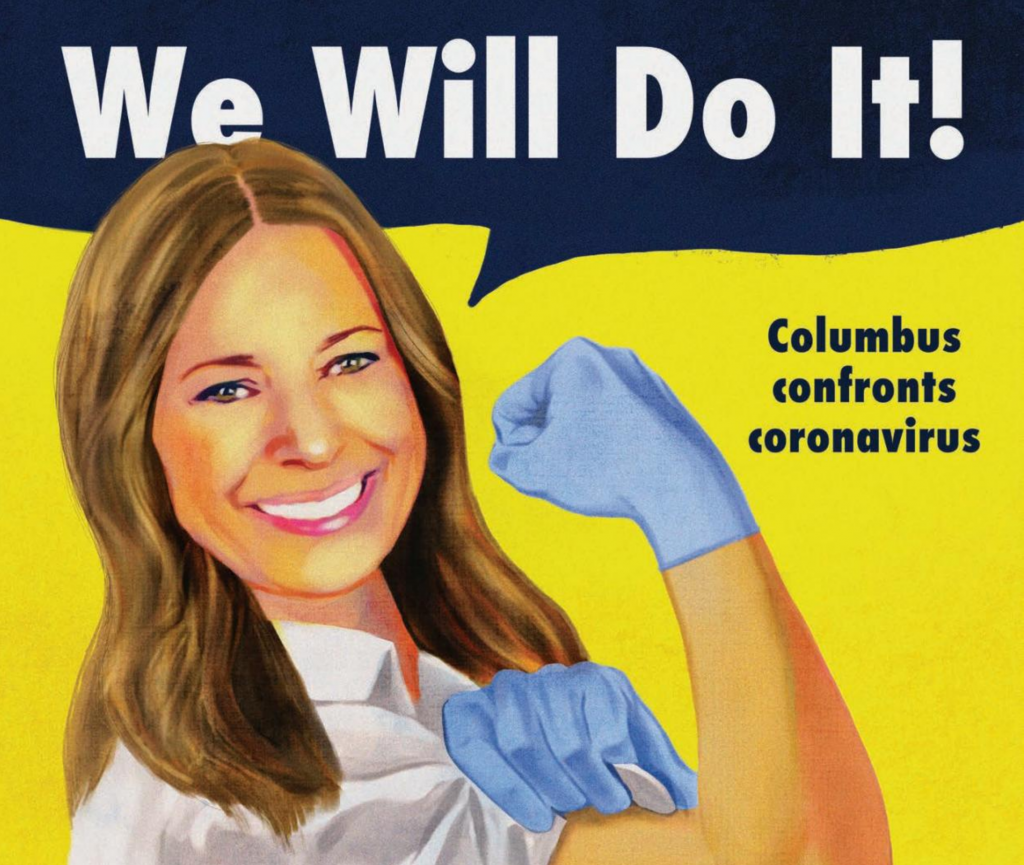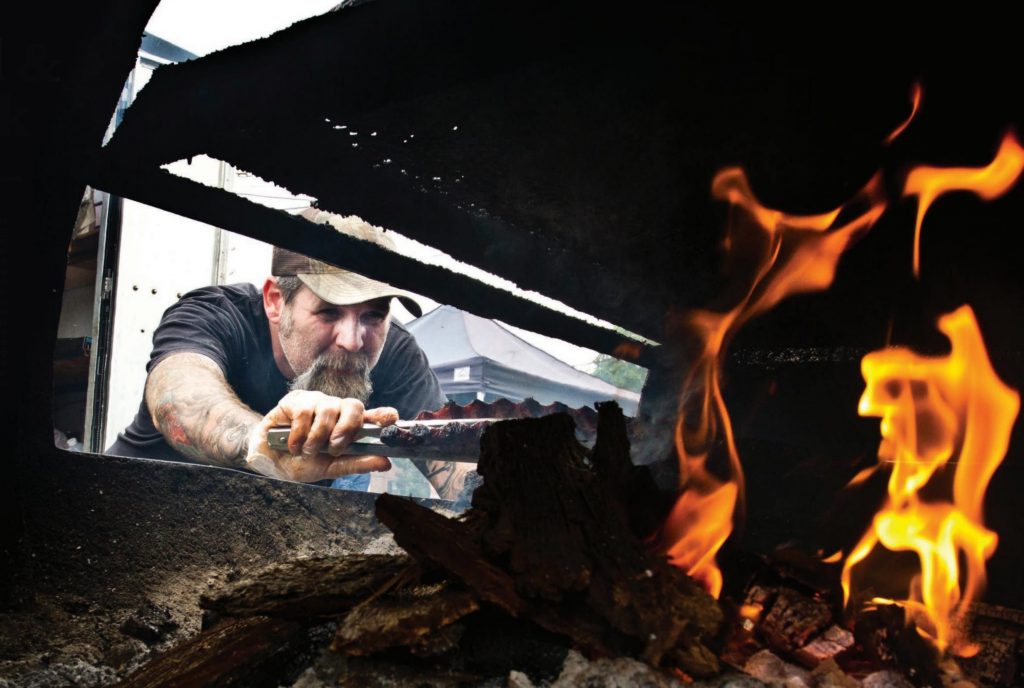Originally published in COLUMBUS MONTHLY

If you noticed the lights on later than expected at The Lox in early April and ran in to get out of the torrential rain saturating the Short North, you probably gave the sign on the door a double take. The familiar din and diners were somehow replaced as the sounds and aromas of Oaxaca filled the air and patrons eagerly lined up for tacos, despite a tornado watch.
Wait, wasn’t this a nationally-renowned bagel shop — like this morning?
Don’t worry, those perennial boiled and baked breakfast classics aren’t going anywhere, nor is Chef Silas Caeton. But his signature Sabo hot sauce is another story, as he prepares to expand the brand to additional retail locations and online sales.
“I love pop-ups, where creators are really passionate about putting something new out there in a limited format, whatever is in the forefront of their minds at the time,” Caeton says. “It’s a chance to create a menu that pairs with the hot sauce with my background in Mexican food.”
For Caeton, that personal history dates back long before his tenure as executive chef at Cosecha Cocina. His parents lived in Mexico for stretch, and his siblings were born there. Though not Mexican by heritage, it was a formative experience that influenced family meals and his relationship with recipes and authentic ingredients from an early age.
“Being at The Lox for the past four and a half years put all of that on the back burner to really focus on bagels, which has also been an awesome experience,” Caeton says. “But it’s a muscle I still want to utilize on the side, to experiment with those flavors and tap into those memories.”
Though Tabasco was his brand of choice growing up, he eventually ventured into more nuanced options. But the right balance of spice, texture, and consistency remained elusive. Cosecha Cocina was the impetus to start creating his own variations, and for those who already know Sabo, its presence at The Lox long preceded its recent availability bottles.
“It’s more than the typical vinegar-based hot sauce, somewhere between a classic hot sauce and a barbecue sauce in thickness. It’s smoky and spicy, but not overwhelming. Hot sauce should complement the food, not overpower it,” Caeton says. “But there’s also a sweetness, not too much, and the Mexican oregano adds this beautiful floral note to it. It’s a very deep, savory sauce.”
When it comes to new menu items, tacos or otherwise, hot takes are often the best takes. Earlier pop-ups at The Lox have been highly popular, now ticketed events to help better predict exactly how popular in advance and are expected to become monthly events. Guests choose from among five refined interpretations—chicken “al pastor”, cochinita pibil, chorizo, sweet potato, and barbacoa—as well as a supporting cast of accompaniments including black bean tostadas to shrimp a la parilla. All are created to showcase Sabo, which is still billed as a hot sauce, but is surprisingly versatile in bringing complex flavors together, not just adding heat.“
Sabo is currently available at The Lox and Joyas. Our near-term goals is add local grocery stores and online sales with a long-term goal of larger chains,” Caeton says. “But it’s still exciting to see regular customers and guests bite into something new and realize the hot sauce that’s now in bottles is the same one they’ve had on their bagel sandwiches for years.” ▩
For dates of future pop-ups and retail details, visit sabosauce.com and follow them on Instagram @sabosauce
… a spicy Postscript
There are no rules when it comes to condiments and how to use them. Here are a few more signature sauces to tempt and test your palate from throughout Ohio — all with their own unique heat.
Cleveland Ketchup Company’s Ghost Pepper · clevelandketchup.com
Husband and wife duo Matt and Lisa McMonagle are new to the condiment scene, but hit the ground running five years ago with fours varieties of the sweet and savory standard. Dollop some of their hot ketchup on a Cuban Frita, the humble hamburger’s Caribbean cousin.
Mister Mustard and Mrs. Mustard · woebermustard.com
Carl Woeber started his Springfield business with a horse and buggy. More than a century later, this spicy couple still stands out. Forget about boiling that brisket. Cover your corned beef in hot or sweet mustard and brown sugar, wrap it in foil, then bake until it’s fork tender.
Sandwich Pal Smoky Horseradish Sauce · woebermustard.com
The raw root vegetable can be overwhelming. But the mix of mayo and mesquite makes this more recent offering from the fourth generation of the Woeber family an underground success. Squeeze a little into your mashed potatoes or add some heat to your deviled eggs.
CinSoy Chili Crisp · cinsoyfoods.com
Queen City Chef Sam Pellerito is all in when it comes to authentic Asian flavors. His creations are small batch and sublime, yet the combination of Szechuan peppercorns and cured garlic in his chili crisp is spice-forward. Drizzle a little on fried pork chops for an extra kick.
Double Comfort Fiery Chipotle Bourbon Sauce · doublecomfortfoods.com
There’s almost too much going on to fit into the distinctive flask-shaped bottle. But one nip and you’ll suspend your skepticism. Those who remember Mary Lyski’s restaurant are familiar with the Memphis influence. Give your chicken drummies a toss for a taste you’ll not soon forget.
Black Cap Hot Sauce · blackcaphotsauce.com
Chef Jack Moore is also shaking up the local hot sauce scene. Fermented and unfiltered, the probiotic first offering from his latest endeavor is only found in the cold case. Add a generous splash to your Bloody Mary for a hangover helper that will clear your head and your sinuses.
Check websites and social media for retail and online availability.
